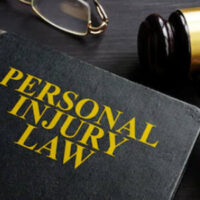Is an Employer Responsible for an Accident Caused by an Employee Who Leaves Work Early?

In Tennessee law, the principle of “respondeat superior” means that an employer can be held vicariously liable for the negligent acts of its employees. A common example of this an employee driving their employer’s truck who causes an accident. The employer can be held responsible for damages in a personal injury brought by the accident victim.
But respondeat superior typically does not cover employee negligence that occurs “off the clock.” In other words, if an employee is driving their personal vehicle on a non-work-related matter at the time of the accident, the employer is not liable for any injuries sustained by third parties. The employer’s liability only extends to situations where the employee was acting within the “scope” of his or her employment.
Court of Appeals: Employers Not Responsible for “On Call” Employees Running Personal Errands
The Tennessee Court of Appeals recently addressed the question of whether an employee is on- or off-the-clock for respondeat superior purposes when an accident occurs after an employee leaves their workplace before the end of their shift. This case, Gunter v. Estate of Armstrong, involves an August 2016 auto accident in Greene County. The plaintiff was driving her car on the day in question when another vehicle “suddenly crossed the center of the roadway” and collided with her.
The negligent driver, who is now deceased, worked for a company called Envision. On the day of the accident, the decedent was scheduled to work until 8 a.m. She actually left Envision at 7:30 a.m., however, driving her personal vehicle. The accident itself occurred before 8 a.m., when the decedent presumably was expected to still be at work.
Envision denied any legal responsibility for the accident. It argued before the trial court that the decedent was not acting within the scope of her employment at the moment of the accident. Indeed, she had left early without permission from her supervisor. And while the plaintiff presented evidence the decedent had been abusing drugs around the time of the accident, Envision denied it had any knowledge of this.
The trial court ultimately agreed Envision was not responsible and granted the employer’s motion for summary judgment. The Court of Appeals agreed with the trial judge’s decision. While respondeat superior can extend to accidents caused by an employee outside of the workplace–such as when they are “running work-related errands”–in this case, there was no evidence that the decedent was performing any tasks on behalf of her employer when she caused the accident with the plaintiff. And although the decedent may have remained “on call” during the half-hour in question, the Court of Appeals said respondeat superior only kicks in when the employee is “actively completing tasks for the benefit of his or her employer.”
Contact a Clinton, TN, Car Accident Lawyer Today
When an auto accident occurs, there may be multiple parties responsible for the damages aside from the negligent driver. That is why it is important to work with a qualified Clinton personal injury lawyer who can help you fully investigate the circumstances surrounding your accident. Contact Fox, Farley, Willis & Burnette, to schedule a free consultation with an attorney today.
Source:
tncourts.gov/sites/default/files/gunter_v._estate_e2018-01473.pdf
